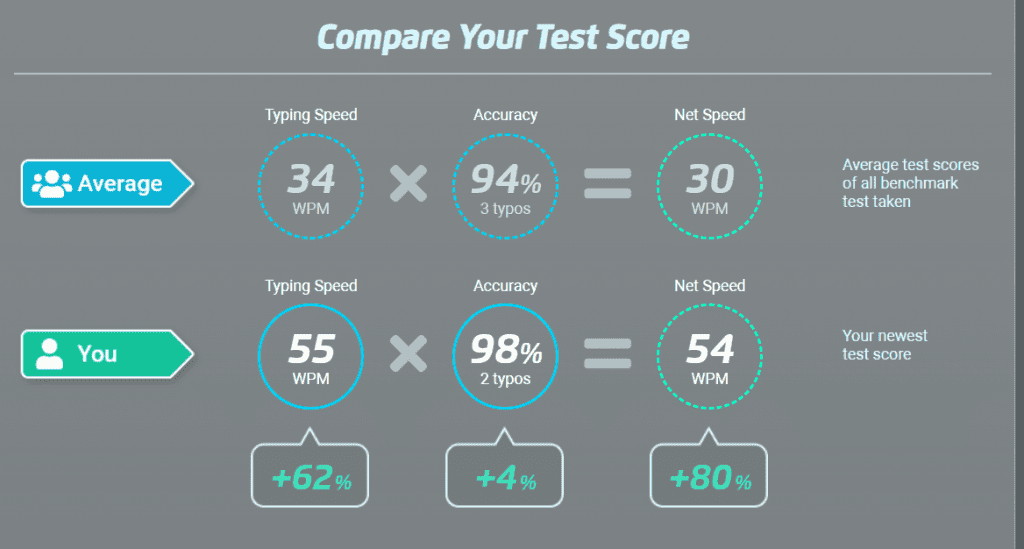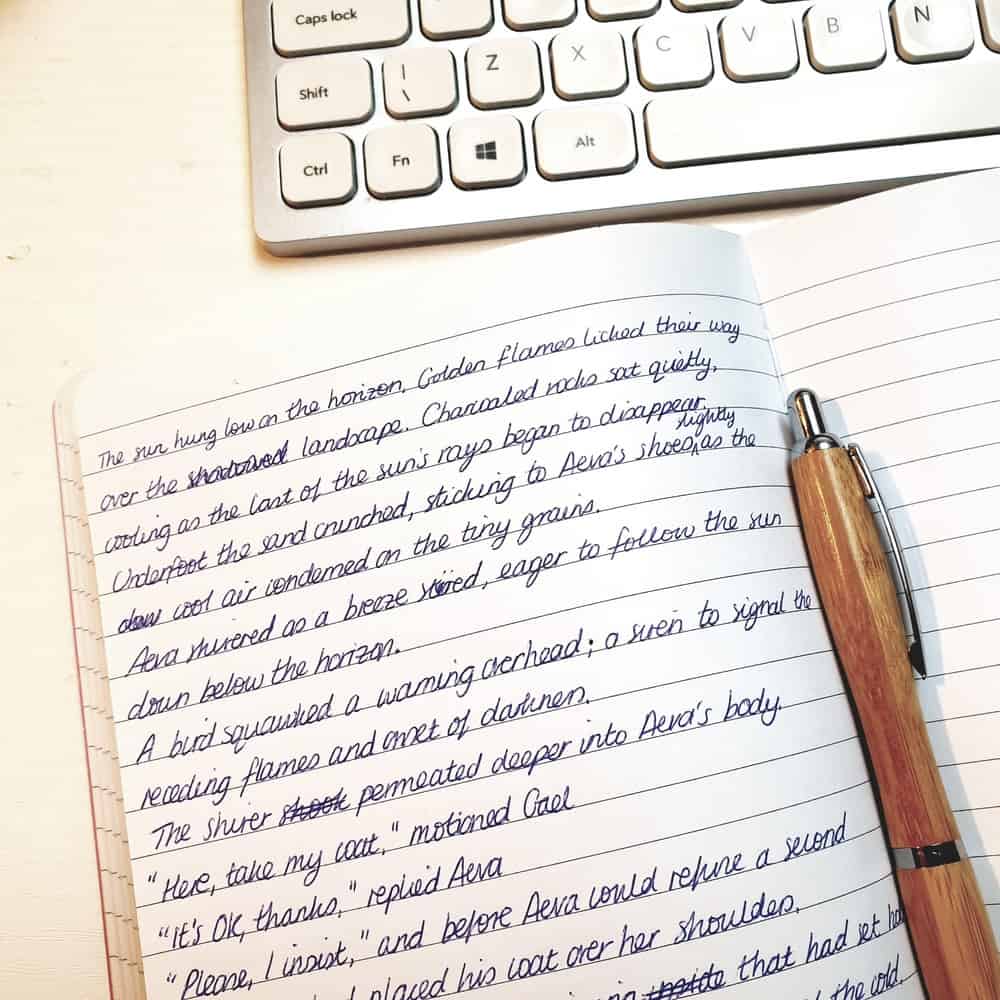Table of Contents
I've really been working on my writing skills a lot in the last year; ever since I starting blogging. Writing is also one of the core skill pillars of academia. Not many researchers get the opportunity to practise, nor take opportunity, of the many ways you can explore writing.
Learning to write faster is just one way to improve your writing skill tool set.
It is my opinion that scientific writing holds back good research from being widely shared and adopted. Writing is a slow process if not practised regularly in its many forms. What's worse is bad writing can hinder the scientific message an author wishes to portray. Poor writing can over inflate and twist research findings according to the authors' agendas or it encourages mis-interpretation of results and findings. Although learning to write faster does not necessarily improve the writing or research quality of science, it is part of the engine which feeds into more effective communication of scientific findings.
Learning to write faster comes down to a few key principles; practise, personal habits, focus and exploration. By adapting and exploring these approaches with your own work, your words will begin to flow.
For many PhD students, writing the thesis is a fear, put off until the final months. At this point it is a mountain you wished you had started climbing many years previous. At the very least, learning to write fast will help make those final months more time effective!
Here's how I have improved my writing speed over the last few months.
Learn to type and/or handwrite faster
Whilst I can't touch type, I have learnt to type a lot faster in the last few months. It's amazing how much of an effect learning to type faster has on the speed of your writing. I mean it kind of goes without saying, when you think about it, but training yourself to punch the keys more quickly works wonders in the long run.
Apparently the average person types 30 words per minute, but I suspect this is conservative. I can type about 54; just under 1 word per second! This number will increase even further if you can train yourself to touch type.
Nevertheless, however fast you can type, your brain can think faster. Try to minimise this bottleneck as much as possible and your writing speed will thank you. If you really struggle with typing, try a voice-to-text app like Otter.ai or a handwriting-to-text product or app. When I'm not in the mood for some voracious typing I like to write on my ReMarkable 2. Its handwriting to text feature is pretty spot on. If you have ledgible-ish handwriting that you can get on the page quickly, this is a fantastic, more distraction-free option to learn to write more quickly.
How you can practise this: Take a the same typing test here. Leave your result down below in the comments! Increasing words typed from 30 to 40 words per minute, could increase your words from 1800 to 2400 per hour - an increase of 25%! After a month, do it again - have you improved?

Separate 'writing' from the other parts of writing
In doing a writing challenge in March 2023 I have learnt the importance of separating out the different parts of what most would consider 'writing'. I split the writing process into five parts; research, outlining or structuring, the actual 'writing', editing and publishing.
If you want to learn to write faster, don't try to multi task; focus on one aspect of the 'writing process' at once. Try just writing on its own, don't take notes and do research and edit all at the same time. It's too much to do all at once and the speed of every one of the things you need to do suffers.
The first few times you try to stick to one part of 'writing', it will probably feel awkward. Stick with it and you'll find you get faster with time.
These parts are not a linear process and I go backwards and forwards within this. Depending on what I'm writing I may do a structure first, or I may start on research and then depending on what the research is saying, determine the structure.
How you can practise this: Next time you try to write, ask yourself - do I have all the information and points I need? If not go back and fill these holes with some rough notes before you start writing.
Try out quantity over quality to avoid perfectionism
By trying to write more quickly we try to force ourselves to make a switch from quality to quantity. Whilst 'quality' may be the way I have historically approached writing, my experience of forcing quantity has developed many new insights into my writing process, improving efficiency and structure.
Perfectionism is a hard habit to beat, but like anything it takes practise. My writing can still end up 'perfect'* after starting out with poorer writing. By forcing perfectionism too early it makes writing an incredibly slow and painful process. The aim of my first draft is to pad out the initial topic and either generate or structure the initial flow of ideas. I want to see how the arguments fit together.
Only then can I work out how I want to say the things I need to; whether it might be better in a different order or deciding on the exact words to make it cohesive and logical. It's essentially switching between descriptive (writing out the arguments/story as a writer) and analytical (considering the arguments/story as a reader) brain modes. By trying to do both things at once it reduces efficiency, so it's best to separate them out.
*it will never actually be perfect
How you can practise this: Write something and do not edit anything. Don't go back to edit typos, flow, nothing. Feels awkward, right? Or alternatively, take part in #AcWriMo and aim to write 50,000 words in a month! I've done 60,000 words in a month; it is possible but it will challenge you!
Get into the flow state (and practise getting into it more generally)
The 'flow state' is when you are most relaxed and efficient at doing work and the hours pass by like there is no tomorrow. It is when most of the magic happens. By recognising how you get into your flow state and practising getting into it you can improve your writing speed massively. I'd recommend reading 'Mind Management - Not Time Management' if you want some help on how to manage your mind rather than time.
If you struggle with focus or 'getting in the zone', then 'Hyperfocus' by Chris Bailey may help. Another book which I haven't read but would like to is 'Flow' by Mihaly Csikszentmihalyi.
One way to facilitate getting into writing 'mode' is to have a set routine before you start writing. For me, I tend to wake up, head downstairs to make a coffee, say good morning to the cats, then head back upstairs to write whilst I enjoy my coffee. I'll often put on some relaxing instrumental music. Being able to kickstart into a certain mindset gets things off to a good start.
I find the time of day is very closely linked to the tasks that are most effective for me to do. I really need to do my major personal task for the day, which is usually writing, before most people even get out of bed. Otherwise I fall down the priority ladder of the day and it just doesn't get done.
Recognising your own body clock is one of the most effective ways of identifying the best time for you to write. Or indeed in conquering other priority tasks. It's amazing how allocating these few hours where you are in flow mode add up to something really big.
How you can practise this: Note how you feel at different times of the day. Is there a time of day you feel the strong urge to do your most important work, or that sets the scene for the rest of the day, or the next day? Start to build up an idea of your best and worst hours and use it to guide your schedule.
Set up a regular habit of writing every day at the same time
Trying to set up a daily writing habit is challenging, but worth it, especially in the medium term. If you want to get words down faster, then just practise sitting down to write every day at the same time. When I talk about writing here, I mean at least one part of the five part process mentioned above. Taking notes is writing, scribbling ideas or mind maps is writing as is editing previous drafts. Even reading forms part of the cogs of the entire writing process.
If you miss a day, ignore it, and get back on track the next day. Try setting yourself a 30 day challenge to write for 1 hour a day. Even 15 minutes is a good start.
It doesn't matter what you write, but I find it helps if I make a conscious decision I am writing. For example, if I am writing an email, I make the conscious decision to improve the writing within that email ensuring that it is clear, logical and time effective for the reader.
If you consistently and consciously show up for your writing practise you will get better and faster.
How you can practise this: Set an alarm for a certain time. Write in this time no matter what. No excuses. Weekends included. You don't have to be doing writing for work. It could be a letter to your auntie.
Write during your witching hours
Some people call it 'eating the frog' but essentially identify the time of day you need to protect for your most effective and productive work. For me, this is somewhere between 5.30 and 10am. Unfortunately a big chunk of that is taken up by a small person. However I try to do the best that I can with the time I have available.
You may find it easier to write at night before you go to bed. Whenever it is, try to protect it for writing, for at least a while. You will be amazed about how much you can achieve in that time. If someone said to me I need to write at 2pm, I would quickly get very frustrated and not get much done at all. But shifting my tasks around will mean that I can make the best of both times.
That being said, don't be afraid to experiment and try out different times of day. Occasionally I get bursts of inspiration and energy later at night! I often find I come up with different ideas and approaches at this time than in the early morning. So it can be fun to mix it up.
How you can practise this: Try writing at different times in the day. Are there times you write better? Take note of what you achieved during that time. Did you manage to write about something really tricky and comprehensive? Were new ideas distracting your writing all the time? Was it a real chore?
Set a time limit
Setting a time constraint to write a certain amount of words, or to write a certain thing, helps keep a little bit of adrenaline in your system. Don't overdo it though; we don't want to be stressed.
I give myself the time from when I get up to when my daughter gets up. It's somewhere in the region of 30 minutes to 2 hours. I must admit it's a little disconcerting not knowing how much time I have. But at the same time, I want to get as much done, as fast as I can.
That little bit of pressure before the day starts is enough to fire out between 500-2000 words or to do the final edits and publishing of a blog post. In the grand scheme of things I can't help but be happy with that. Especially since even full time writers seem to work around that amount!
How you can practise this: Set yourself a timer and try to write a certain number of words in that time period. Try it every day for at least week, ideally a month. You should start to find it easier and develop some ideas on how you might improve it.
Outline first to get the gist of the story you want to tell
Learning to outline, before I start writing, has been one of the biggest factors to improve my writing speed. As I mentioned above, sometimes I outline then write. Sometimes I have a concept, research it, outline it and then write.
I often don't outline on the computer. Often I'll sit down in the evening, or even in bed, making outlines of what I want to write over the next few days. It really helps when I come to write as I already have a structure to create around. I do find it a bit more difficult to do for scientific writing, but as I mention above, practise makes perfect!
Sometimes when I start writing, I find there is a big chunk missing or the order is wrong. Outlining is good for creating the structure, but only writing and subsequent editing will determine the final order of events. When it comes to my current blog pipeline, I actually have; two outlining stages, two research stages, three writing stages and two editing stages. This seems like a lot, but most writing does not go through all of those stages.
Most writing only goes through one outlining stage. However if I get my teeth into something, it may need to go back to outlining at a secondary stage to make sure I can identify what it is I am actually trying to say! Therefore outlining, even post writing, is essential to identify coherent flow of ideas.
How you can practise this: Go back to a piece of writing you never outlined. Outline it, summarising each paragraph as one point of your outline - does it make sense?
Try free writing
Free writing is something I tend to use more for journaling or fictional writing. If I need to work something out, I'm confused or angry, or just generally deflated, writing out thoughts as they come to mind is a helpful way to develop unfiltered writing. I usually use manual methods, i.e. a notebook, to do this type of writing. The process of physically writing the words seems to help with the free flow aspect.
'Free writing' can make a lot of words in a small space of time believe me! I do find the quality is very low, but sometimes it's a process to stimulate other thoughts. Other times it helps to expand on ideas or feelings before they are developed further. It can also help initiate a period of more focused flow. It's also good to try this for 'brain storm' style idea generation too.
How you can practise this: Grab a notebook, some alone time and a comfy chair. Write unimpeded. Write as if your high school language teacher will never see it.
Try a different genre or style
I have fun experimenting with different types of writing. In doing this, I've found things start to cross over and I can write in slightly different ways than I did before.
I'm currently working on a presentation and for the first time I started out with the story and fit my results to that, rather than the other way around. Additionally, before spending significant time improving my writing I would never have considered using literary quotes in a scientific presentation. Yet one of the things I got a lot of positive feedback on, was my use of quotes! I have writing a blog on the side to thank for that.
It's fun to try out other writing styles. Using a notebook forces slow writing. Here you get a sneaky peek at a first draft in my notebook - lucky you!! Just in case it isn't obvious, I was trying to write using a 'fire' analogy...

I'm also trying to write a book. I don't write this as often as I should but just occasionally I get the urge and its fun to develop characters and realise that they don't always do what you want them to; separating yourself from what you think your writing should say as opposed to how it actually develops through your character is super fun to do and can help develop different viewpoints when it comes to do more evidence-based writing.
Writing in different genres helps with story-telling and generally being more creative with your style.
There's even a Journal of Imaginary Research which lets your ideas run wild! Check out my abstract in Volume 8! They typically have 1 or 2 submission rounds a year so why not try it out?
How you can practise this: Write your research out as if a 10 year old kid found the same experimental result as you, but in their bedroom, on a spaceship. What emotions would they experience? Or why not start a blog?
Try a different location
Experiencing a different location can stimulate us to write in a different way and create a flow of words. Sometimes inspiration can strike and all you have to hand is a napkin. Therefore be prepared by taking a pen and notebook and/or laptop wherever you go. Try getting those thoughts out as fast as you can to make space for more coming their way!
In my jacket pocket, I carry a tiny little notebook and pen, just in case I ever need to make a few notes. I also regularly try to go to a coffee shop to experience different environments. I don't always use it for writing, but I do find it helps with some aspects of work, particularly when I need to work through some admin or process ideas, into something more structured.
How you can practise this: Head to a library and note down how it makes you feel. Head to a café - does it make you feel any different? What about a different café? What is it that changes how you feel? Can you connect these feelings with different parts of the writing process?
Force yourself to write slow
Have you ever tried forcing yourself to write slower? I find that a physical notebook is better for this. I tend to think in a more structured and logical way, slowing down the writing and being more deliberate in my words. Then, when I get back to the computer, I 'feel' like I am writing faster. As such this feeds the brain into the ability to go up and down the writing speed gears more effortlessly.
Try not to get annoyed or frustrated at yourself for writing slow. This is usually the case with academic writing; I am a lot slower. I try to hold back the frustration and this takes practise. Often times it is the frustration associated with writing slow, which hinders the creative flow. Find acceptance with slow writing.
How you can practise this: Try writing in a notebook with a pencil. Write slowly and deliberately. Rub out any mistakes and re-write them again. Practise not getting frustrated with the slow progress you will make.
Conclusions on some ideas to help you write faster
I hope that you find these ideas useful to improve your writing speed. I find my writing speed goes up and down depending what I'm writing about. If I have my teeth stuck into something, and I'm in the flow state, I can 'crank out' almost 2000 words an hour. I never thought I could write 30 words a minute, but I'm pleased to know it's possible! In fact, if I can keep up 50 words a minute for an hour, that's 3000 words; epic!
If I'm in the flow my typical creative speed is 1000 words an hour and around 300-500 if I'm doing academic writing. I can clearly see where I need to improve...
Do you have suggestions on how you improve your own writing? I'd love to hear them. Leave a comment down below with your thoughts!









Comments